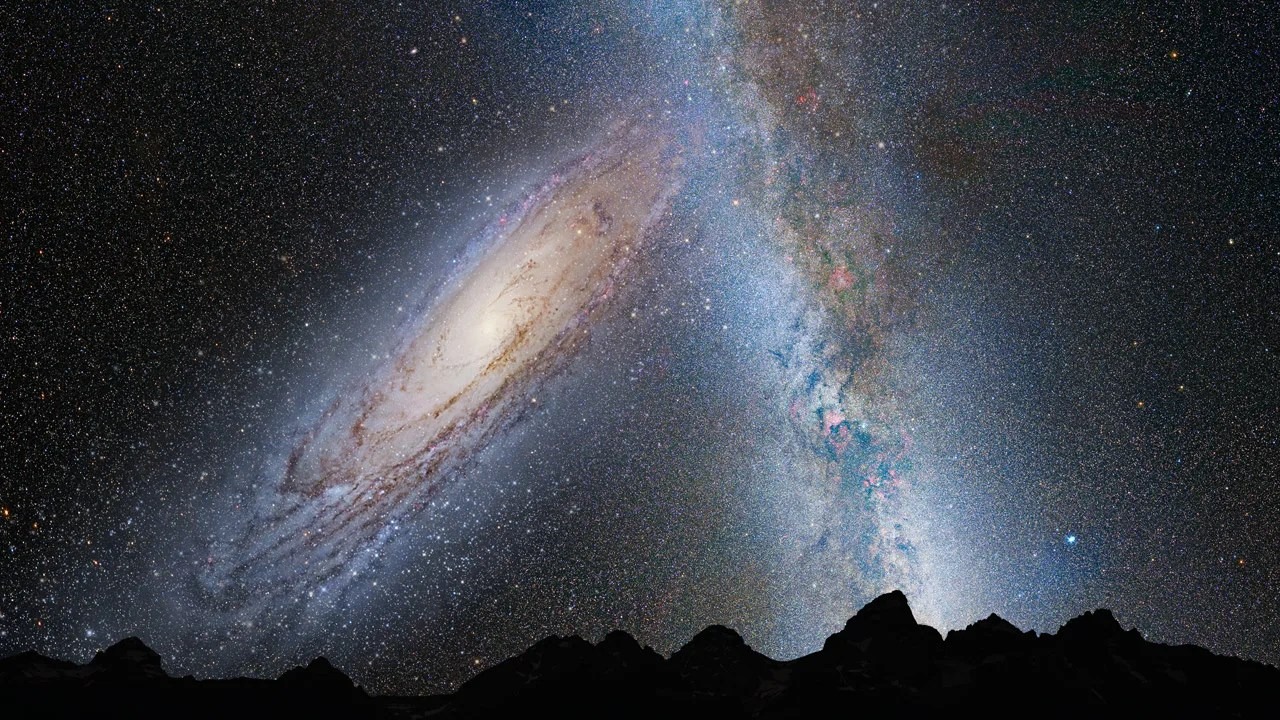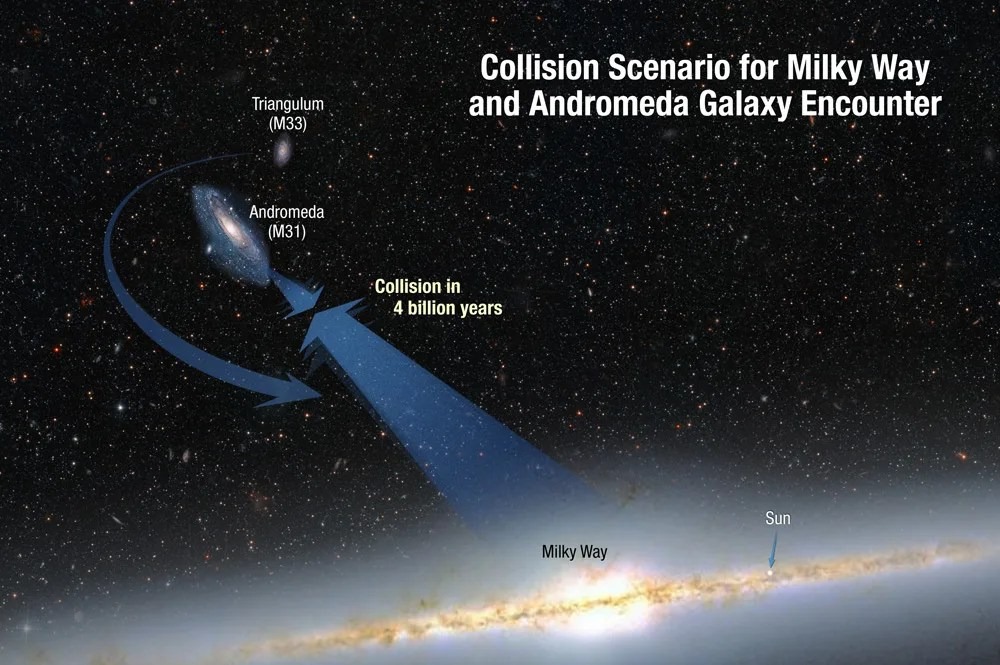The Milky Way’s collision with Andromeda, once considered inevitable, is now being called into question. Previously, astronomers have predicted that our galaxy will merge with Andromeda in 4.5 billion years in a huge collision that will last for several more billion years. However, a new study published on the arXiv preprint server indicates a 50% chance of avoiding this collision. The study has the provocative title, “Apocalypse When?”.

The Andromeda Galaxy is 2.5 million light years from Earth. It is slowly approaching our galaxy. In 2021, the Hubble telescope recorded Andromeda approaching our galaxy at 400,000 km/h. Scientists then calculated that the collision would occur in about 4.5 billion years, and two billion years after that, the galaxies would completely merge to form a single elliptical structure, moving the Solar System into a new region.
The new study, led by astrophysicist Till Sawala of the University of Helsinki, uses data from the Gaia and Hubble telescopes to analyze the motion and mass of the largest galaxies in the Local Group, including Andromeda, the Milky Way, Triangulum, and the Large Magellanic Cloud. They modeled the evolution of these galaxies over the next 10 billion years on a supercomputer and found that the merger occurred in only less than half of the scenarios.

“As it stands, proclamations of the impending demise of our Galaxy appear greatly exaggerated,” the researchers wrote in their study.
The discovery casts doubt on previous predictions of an imminent merger. Scientists note that future data from Gaia will help measure the motion and mass of galaxies more precisely, and only then the fate of our galactic neighborhood can be accurately determined.
We previously reported on how the Andromeda catastrophe triggered a massive galactic migration.
According to Gizmodo


